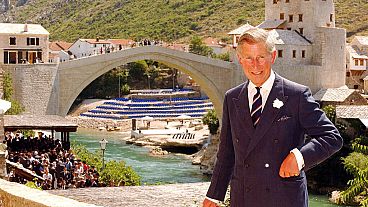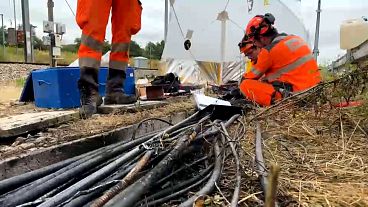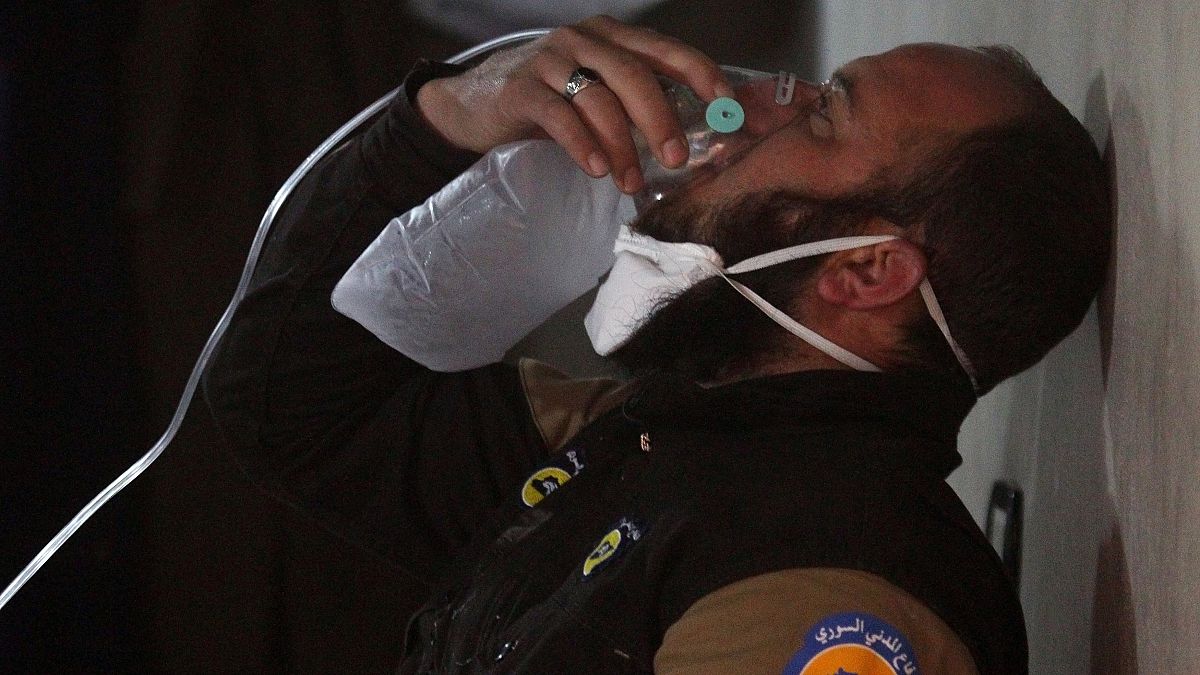At least 58 people have been killed in Syria’s northern Idlib province, in what has been reported as a chemical weapon attack.
At least 58 people have been killed in Syria’s northern Idlib province, in what has been reported as a chemical weapon attack. It is believed that 11 children are among those killed.
The rebel-held town Khan Shaykhun was the target of the attack, and as victims were being treated in the local health clinic, it was targeted by shelling or bombing.
Doctors said the patients showed signs of being exposed to poisonous gas, but said it was not chlorine as has previously been used in the Syrian war.
Who is responsible?
The Syrian Observatory for Human Rights, a British-based organisation, says that the attack came from the air. The Observatory says that makes it likely that either the Russian or Syrian air force were behind the attack.
If the attack was indeed from the air, it would all but rule out ISIL or rebel groups, as they do not have access to air power.
Both the Syrian and Russian governments have denied being responsible for the attack.
The US government has said it is “almost certainly” carried out by Syrian President Assad’s forces.
What type of chemical weapon was used?
It is hard to say what type of weapon was used, due to the difficulty in accessing the areas of Syria allegedly hit by chemical weapons. Experts have also warned against trying to judge from video clips.
However, the US government say it believes the deadly agent Sarin was used.
What are they saying?
The US government has condemned the attack, calling it “reprehensible”. Foreign minister Tillerson says the attack shows the “brutal unabashed barbarism” of the Assad regime.
British PM Theresa May has called for an investigation into the attack, which she said would amount to “further evidence of the barbarism of the Syrian regime”, if proven.
French Foreign Minister Marc Ayrault said the attack was an attempt by the Syrian government to “test” the new US administration. Ayrault said Paris has already told Washington DC to clarify their position on “political transition in Syria”.
Turkey also called for an investigation, and Ankara called on “all sides that influence the Syrian regime” to help stop the ceasefire violations.
Meanwhile, the UN war crimes investigators have said their investigation into the apparent use of chemical weapons in Idlib is underway.
Is there history of chemical weapon use in Syria?
The short answer is: yes.
In August 2016 an attack on the then-besieged city Aleppo allegedly included the use of chlorine gas. UN envoy Staffan de Mistura said at the time, “there’s a lot of evidence that it (a gas attack) actually did take place”.
Then, a month later, another alleged chlorine attack left dozens in need of hospital care, again in Aleppo.
As early as 2014, allegations that the Syrian government had been using chemical weapons were emerging. Human Rights Watch said chlorine had be used in conjunction with barrel bombs.
Attempts have been made to stop the Syrian armed forces using chemical weapons. In 2014 approximately 92% of the nation’s declared chemical weapon supply was handed over to Italy for destruction. Crucially, chlorine gas was not on the list of weapons the Assad regime had access to.
But it is not just the Assad government who have been accused of using chemical weapons in Syria.
In 2015 the Organisation for the Prohibition of Chemical Weapons said mustard gas was used in an ISIL bombardment, north of Aleppo. However, as there is no evidence that ISIL are capable of creating these weapons, it is believed the mustard gas shells were seized from captured Syrian army positions.












